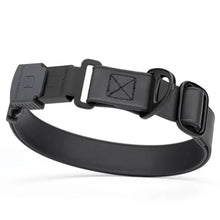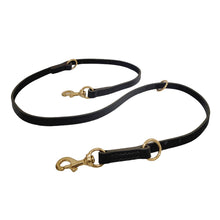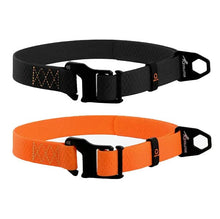Breeding Ethics: The Controversy Over Designer German Shepherds

Panda Shepherds! The dilutes, i.e., liver (red) and blue. Solid white GSDs. Some people sell them for big money. They call them designer dogs. Or they say they're rare. Supply and demand says that if people want these colors, and they're rare, the price is supposed to be high. Is breeding for these colors ethical, though? That's the topic for today, folks!
People have excellent vision compared to most animals on this planet. We can see far, and clear, and we are gifted with trichromatic vision that lets us experience more colors than our dichromatic dogs, who can only see in shades of yellow and blue. This would be similar to humans who have green-red color blindness. But, since we have this gift that we use to discern ripe red and orange fruit from bitter green fruit, we have developed a bias toward colorful things ... we often want things that look different and are colored differently than the rest. We want something that pops and sticks out. Which is fine for clothes, jewelry, art, etc. But is it ethical to breed or purchase dogs for their color?

If you are a pet owner and you want a specific in-standard color. I see nothing wrong with that. If you love dark sable dogs, and the breeder you've chosen produces them regularly, there's nothing wrong with wanting a dark sable over a black and tan or a solid black or bicolor dog. Now, if that's the sole purpose for you purchasing that pup, good luck to you. You're going to need it. Of all the things to choose a puppy over another for, color should be way down the list like the last name "Zachary" in a phone book.
You should be choosing puppies on their character and drive. Their sociability, the hardness of nerve. Then, after those boxes are checked off ... you can start worrying about color. A dog with a cool color that might bite your nephew because he's sharp and reactive isn't ideal. I would rather have no dog than a dog that's a 1 of 1 and might bite a child. But that's just me. I'm sure most of you feel the same way, though.
So, let's get into health issues. Do solid white dogs and dilutes have health issues associated with their out-of-standard colors? Yes, they do. Deafness, color dilution alopecia, other skin issues are more likely ... but not by much. Not enough to avoid a dog of those colors based on health. Not even close. They're nearly identical to dogs who are in standard colors as far as that goes.

But, they are less likely to come with generations of genetic health testing, including testing for DM and hip dysplasia. Why? Because the people who health test their GSDs the most are European show line breeders and working line breeders. They were doing hip x-rays in the '80s. Most American GSD breeders still don't get OFA tests done on their dogs before breeding. Did you ask about OFA before purchasing the pup/dog you own right now? Don't be afraid. If you didn't ask, and your dog ends up with dysplasia, cross that bridge when you get to it, and just remember to never buy a puppy or dog from a breeder who doesn't do hip testing again.
If you find a panda, or blue, or liver pup with OFA tested parents, and a great temperament, that dog will make a wonderful, hopefully healthy pet. But before you pull the trigger and buy that puppy, look into the breeder. If your dream was to be a dog breeder. The best dog breeder in the world. Would you choose to breed dogs that are automatically disqualified in your country's breed club based on their color? I personally wouldn't. It doesn't really make sense. At best, you'd be trying to breed the best pet German Shepherds in the world. But how do you measure or quantify that? There's no national "Best Pet Dog" competition.

German Shepherds are working dogs, aren't they? I mean, sure, they make great pets, but isn't the number 1 purpose of breeding working dogs to ensure that the dogs you produce have the ability and drive to work? If they're a great pet and have that ability, that's great. But shouldn't the ability to work come first?
For me it's:
1: Health.
2: Working Ability.
3: Temperament.
4: Hardness.
5: In Standard Size (height, weight, conformation).
6: Color.
I am wary of someone who breeds German Shepherd Dogs based on color alone, even if they produce dogs with great temperaments and have an excellent health track record. Are they breeding for the money? Was it just a fluke genetic pairing of 2 breeding dogs? Again, if it's just to create healthy, happy pets, I get it. But also, yet again, how does one quantify that? Also, have you ever heard of the Non-Sporting Group? It's a group of dogs that were bred almost entirely to be pets, nothing much else. So why breed a working or herding group dog specifically to be pets vs. to be able to do the jobs they were created to perform? I can't shake that suspicion. It just doesn't sound right to my ears. If it doesn't make your ears ring like it does mine? Go ahead, buy the puppy.

At the end of the day, we're all free to breed whatever dogs we want or buy whatever dogs we want. For whatever reason we want. I see no reason to buy from a breeder who breeds dogs with disqualifying faults or doesn't breed specifically for work. If you do, buy exactly what you want, and I sincerely hope the dog makes you very happy. My job isn't to judge breeders that I'd never buy a puppy from or to judge people for buying a puppy in a color they like. Just, please, make sure whatever breeder you choose OFAs their dogs before breeding. And don't overlook temperament flaws in puppies because you really, really like the red one. Do your due diligence, and make sure your breeder did theirs as well.
It's okay to let people like the things they like, as long as the things they like don't hurt or affect others negatively ... including the dogs they like. I might change my mind if I hear about Panda Shepherds self-exploding, but so far, so good! Thank you all. Please leave a like and a share. I hope you appreciated the tongue-in-cheek humor in this one. I couldn't help myself!
You might also like: The Benefits Of Owning A German Shepherd For Emotional Support






















